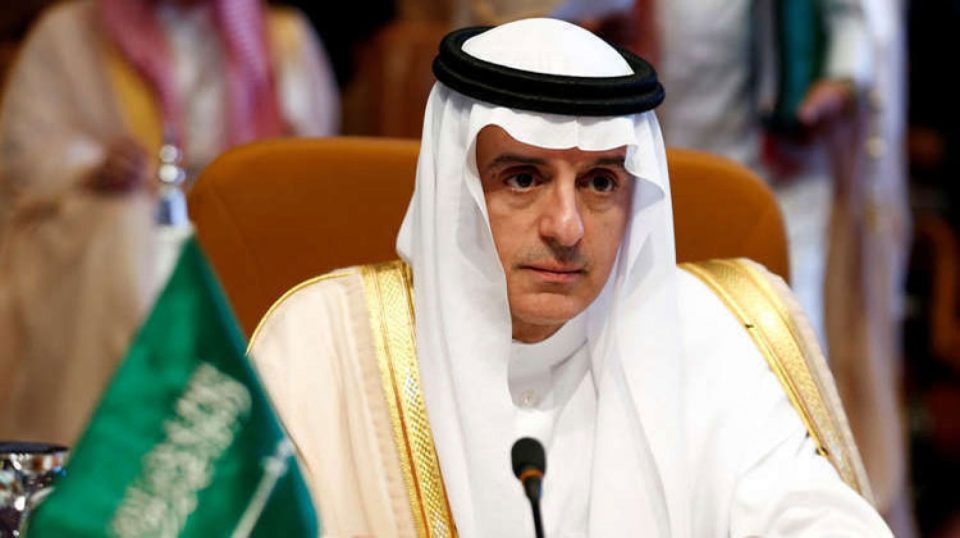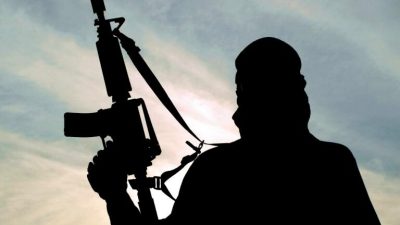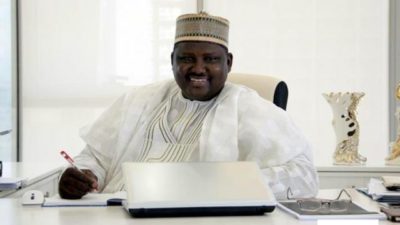By KEMI KASUMU
Against views of those who think by embracing the dictates of the West dogmatically without scrutiny is the meaning of civilisation, Kingdom of Saudi Arabia says it has its own values especially in areas uncompromisable of the directives of Islamic Sharia reason for its rejection of Convention on Elimination of Discrimination Against Women (CEDAW) Agreement
Some people, especially among Nigerian opinionsts, have described reported permission of alcoholic consumption in the Sharia based monarchy country as sign of civilisation signposting readiness to grow out out of the wood, but they have been tackled by others, who dismissed their thinking as nothing but mere thought of free-thinkers that cannot fly.
Those who tackled them have clarifications on things the failed to know abd are not seeking enlightenment upon. They are told that Saudi Arabia, much as connected or is headquarters of Islam in the world as it, is still a country and cannot run its affairs in isolation of others.
This they say is reason the Kingdom set aside The Two Holy Mosques called Al-Haramain that is The Holy Mosque of Makkah and The Holy Mosque of Madinah. They are fully Islam and compromise nothing on the basis of that. They are also governed by the General Presidency. There is however a Governor of Makkah and Governor of Al-Madinah who are responsible to Riyadh, the capital.
President of the General Presidency for the Affairs of The Two Holy Mosques (Masjid al-Haram in Makkah and Masjid an-Nabawi in Madinah). The General Presidency of Haramain is a Saudi government agency responsible for the development and administration of the Islamic holy sites of the Masjid al-Haram and the Masjid an-Nabawi, facilitated by its religious, technical and administrative departments. The agency was founded on 8 May 2012 by a royal decree from King Abdullah of Saudi Arabia. Headquartered in the Masjid al-Haram in Makkah, the agency is overseen by the President who is appointed by Royal Order.
Abdul Rahman Ibn Abdul Aziz al-Sudais, one of the nine Imams of the Grand Mosque, Masjid al-Haram in Makkah, Saudi Arabia, is the President of the General Presidency for the Affairs of the Two Holy Mosques; a renowned Qāriʾ (reciter of the Qur’an). He was the Dubai International Holy Qur’an Award’s “Islamic Personality Of the Year” in 2005.
Al-Sudais has preached Islam’s opposition to “explosions and terrorism”, and has called for peaceful inter-faith dialogue. He has denounced the treatment of Palestinians by Israeli settlers and the state of Israel, and called for more aid to be sent to Palestinians. He has also been noted for identifying women’s un-Islamic behaviour as in part responsible for the winter 2006 drought in Saudi Arabia. In 2016, he delivered the very important Hajj sermon to a multitude of pilgrims gathered at Arafat after prayers.
Outside of The Two Holy Cities particularly the Al-Harama8n, from Jedah to Riyadh and others, Saudi Arabia is like any other country but still has its law that makes it impossible for anyone to enter the country and misbehave. If, we gathered, the Prime Minister, Crown Prince Muhammad Bin Salman, is therefore allowing window for certain foreigners to do their own things in the country, it is not out of place and clarifications must be sought before anyone takes it upon itself to run down the Kingdom either as one that is now ready to embrace civilisation (of West?) or one that has backslide and is becoming a disgrace to Islam (on allegation of allowing alcohol?)
Those who celebrate some of the policies of the country as one that means embracing civilisation have been proved ignorant because Saudi Arabia in nowhere will make its society an alcoholic consumption empire. What gathered was there are some Westerners who would want to come to do business but have been so afraid that they work not be able to drink their kind of wine while in the country to do business. The window is for such oersons to consume their drinks within the ambit of their own abode. Surely, any such thing public attracts punishment. What is celebration of Saudi enbracement of Western celebration for, in that? Questions are asked.
“Does a country of Qur’anic Foundation need other civilisation and is there any civilisation that is better than the civilisation of Islam as perfected by the Qur’an?” A respondent asked and provided a answer saying, “No.”
However, the asoect that involves the United Nations’ Convention on Elimination of Discrimination Against Women (CEDAW) Agreement is one area of compromise that Kingdom of Saudi Arabia would not allow abd its reasons are explicitly clear.
We gathered that it is not just about rejecting women driving a car but about the content of the convention that tends to bring Muslims in conflict with the Shariah of Allah this requiring to choose between satisfying the West-controlled whims and caprices of the United Nations and be doomed or satisfying the decision of Allah and be saved from calamities of the grave, hell fire, this transient world and still be in peace here before the end of time.
This explains why last year the Saudi Arabia announced its rejection of the United Nations document on the CEDAW (convention on elimination of discrimination against women) Agreement, an international treaty adopted by the United Nations General Assembly.
The Kingdom, while rejecting the CEDAW, revealed its non-compliance with the provisions of Islamic Sharia. Unfortunately, some Arab countries had begun to agree to the agreement.
For those who are ignorant of the CEDAW, Minister of State for Foreign Affairs Adel Al-Jubeir, made it know why Saudi Arabia rejected it. The country saw that:
1- CEDAW says that a woman is like a man. And the Qur’an says: “And the male is not like the female.”
2- CEDAW says a man is not allowed to have polygamy. And the Qur’an says: “Then marry as many women as you like, two, three and four.”
3- CEDAW says that children are named after their mothers. And the Qur’an says: “Call them to their fathers.”
4- CEDAW says: There is no waiting period for a woman. And the Qur’an says: “And divorced women await three readings by themselves.”
5- CEDAW says the man does not have guardianship over the woman and the father does not have guardianship over his daughters. And the Qur’an says: “Men are the guardians of women.”
6 CEDAW says male and female in inheritance are one. And the Qur’an says: “The male shall have the share of two females.”
7- CEDAW says a man can marry a man like him, a woman can marry a woman like her. And the Qur’an says: “Do you come to the remembrances of the worlds.”
8- CEDAW gives women the right to have an abortion. And the Qur’an says: (And do not kill your children).
9- CEDAW does not criminalize sexual relations outside of marriage for both spouses. And the Qur’an says: (Do not approach adultery, for it was an indecency and an evil way).
10- CEDAW says: A woman is bound to whomever she wants, separates whenever she wants, and reconnects whenever she wants. And the Qur’an says: “Magnorous women who do not intermarry, nor take wives’ wives.”
11 – CEDAW says: The age of marriage is after eighteen. And the Qur’an says: “And afflict the orphans until they reach the age of marriage).”
Whoever wants to stand by CEDAW and defend it must know that he is disobedient to God, and denies His Book and the Sunnah of His Prophet, reason forbthe rejection CEDAW.




